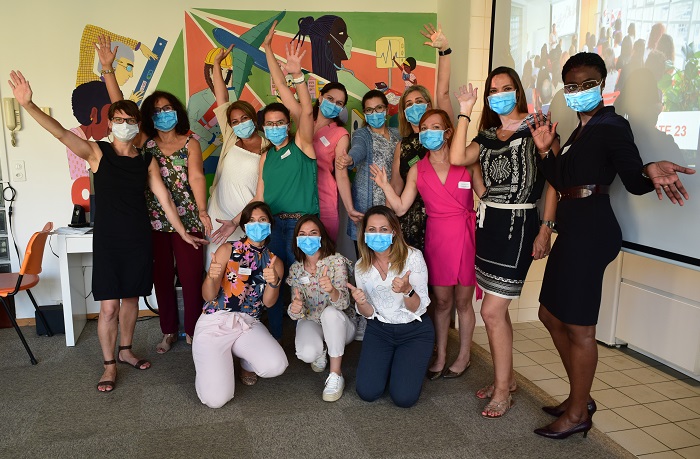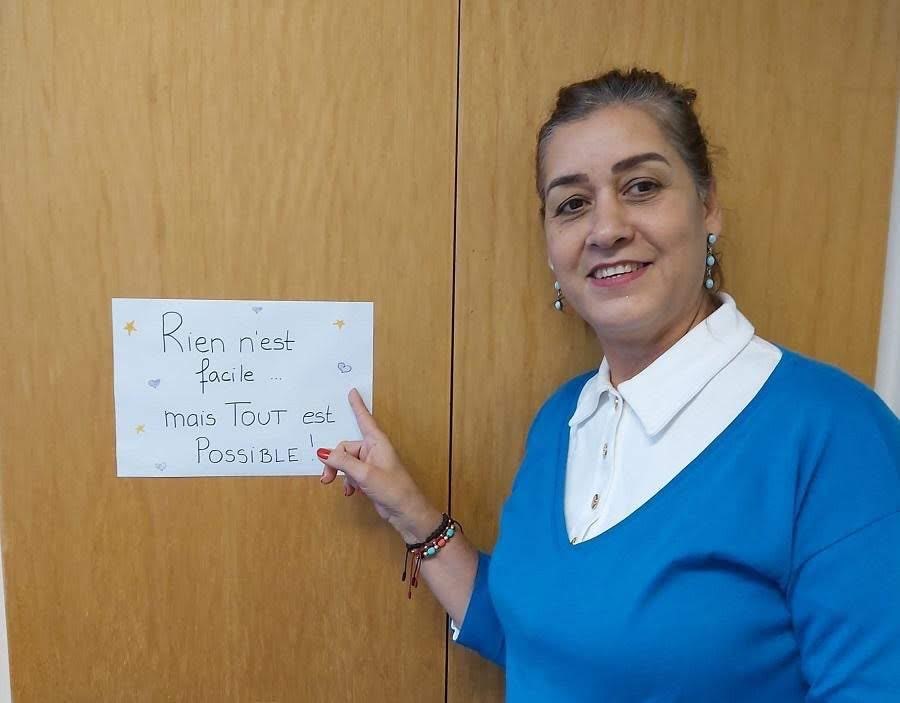
Bridging the gap for skilled immigrant women

You must have a clear professional goal and you must regain your self-confidence. These are two key pieces of advice that the association découvrir gives to skilled foreign women residing in Switzerland.
The group, which is active in the French-speaking part of Switzerland, was born of the experience of Colombian immigrant Rocío Restrepo, who resolved to pursue a career in the country that granted her asylum in 1999.
As a mother with dependent children, the only employment she could find was in housework, office cleaning or childcare, despite two university degrees and a background in human resources in Colombia.
Wondering whether she was the only person in this situation, she visited all the women’s associations in Geneva. “I met 80 other women who were in the same boat. There were a lot of us, from many different countries.”
Restrepo, a psychologist, soon realised that skilled immigrants – male and female – faced common obstacles in finding jobs in Switzerland that reflected their training, ability and experience. This was particularly flagrant for those not from the European Union, Iceland, Liechtenstein or Norway –countries with which Switzerland has agreed to share its labour market and workforce. In 2007, she set up the association découvrir (discover) to help provide solutions to the problem.

“In our association we try to work out with each individual who knocks on our door what steps they should take to have their degree accredited, their studies partially recognised or their work experience valued in order to find a job. For it’s often the women themselves who underrate themselves, simply because they are immigrants,” she explains.
So far, over 3,000 women have benefited from the association’s services, like this lawyer from Brazil. “I came to Geneva in 2013 to be close to my children, who were already living here. Back home I was a court registrar. It was difficult because I did not speak any French. I cleaned houses to cover my costs. I believed that at my age, without knowing the language and with my law studies in Brazil, I would be unable to find a better job.”
The association helped her through the different administrative procedures necessary to obtain recognition of her law degree and reshaped her career plans.
“I got excellent marks in the DELF B2 French exam, did a master’s in criminology at the University of Lausanne, rewrote my CV and got an internship. Today I work as a project manager in the integration sector,” she says in the association’s latest annual report.
Realistic goals
“It’s really up to the individual,” says María Saldana, a specialist in adult education who graduated from the University of Geneva and runs the ProActe programme at découvrir.
Saldana arrived in Switzerland from Peru 22 years ago and holds a degree in social assistance. She says that, initially, many participants do not have a viable professional goal in mind. “So our programme helps them focus on realistic objectives, thanks to the experience we’ve built up in providing such support, case by case,” she explains.
“For example, I’ve just met an electrical engineer from Tanzania. She specialised in China, where she also gained solid work experience. But for the past four years here she has been looking after her children, and we can see that she has lost a lot of her self-confidence. She is thinking of starting from scratch as an assistant in her husband’s medical office or opening a day nursery. She seems to have forgotten her engineering qualifications. We’ll take an objective look at what she needs to do for the different options open to her.”
The ProActe programme, which was launched in 2008, has so far helped some 300 women. “Around 35% of them have found jobs in keeping with their qualifications,” Restrepo says.
Solidarity as a basic value
Whenever a woman finds a place on the Swiss labour market, she is duty bound to help someone else with a similar profile who has not yet achieved this goal.
“You have to put people in contact quickly with others who are already working in the sector,” explains Restrepo, who is now planning to open a helpline for immigrants living outside the French-speaking part of Switzerland.
The association’s efforts to identify the specific needs of each client, through its counselling and mentoring programmes in Geneva and at its branches in Vaud and Neuchâtel, are possible thanks to the support of private donations, public grants and the candidates’ own contributions, which in total currently amount to an annual budget of over CHF1 million ($1.09 million).
What’s more, the association is now working to strengthen its ties with businesses “to make them aware of the potential of women immigrants” – a basic issue where much remains to be done, according to Jérémie Savoy, who conducted an exploratory study on the association for his master’s degree in socio-economics at the University of Geneva.
“All told, découvrir has followed a successful strategy and found appropriate solutions to help reduce or prevent de-skilling,” he concludes.

In compliance with the JTI standards
More: SWI swissinfo.ch certified by the Journalism Trust Initiative



























You can find an overview of ongoing debates with our journalists here . Please join us!
If you want to start a conversation about a topic raised in this article or want to report factual errors, email us at english@swissinfo.ch.